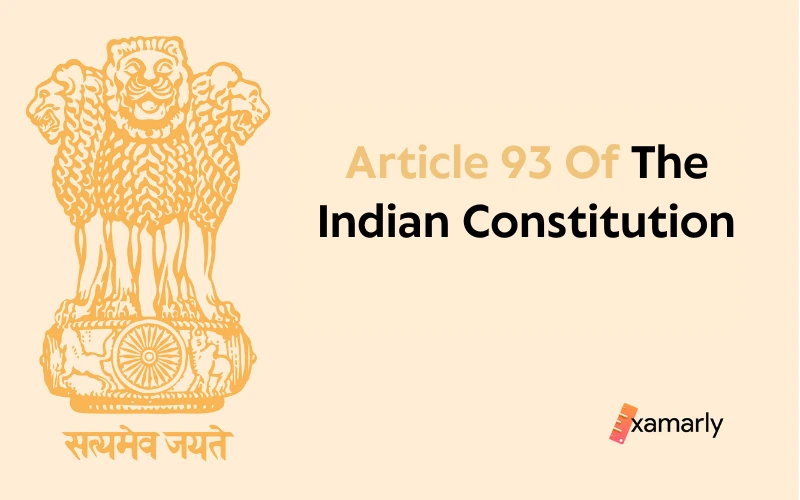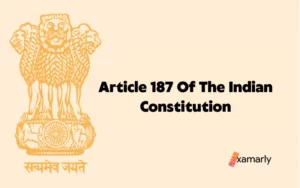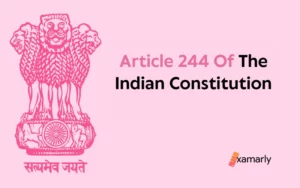The Speaker and Deputy Speaker are elected in accordance with Article 93 of the Indian Constitution.
It is outlined in Part V of the Indian Constitution. This article is worth reading as it is a part of Indian Polity covered in the UPSC Syllabus.
Article 93 Of The Indian Constitution
Article 93 states that the Speaker and Deputy Speaker of the House of the People shall be elected by the House of the People as soon as feasible. When one of those places falls vacant, the House shall choose a new member to fill the position when essential.
Key Facts
- The Government of India Act of 1919 (or Montague – Chelmsford Reforms) gave rise to the Speaker and Deputy Speaker positions in India in 1921.
- Prior to 1947, the Speaker and the Deputy Speaker were acknowledged as the President and the Deputy President, respectively.
- The Central Legislative Assembly’s President and Deputy President were renamed as Speaker and Deputy Speaker, respectively, by the Government of India Act of 1935. However, the 1935 Act’s federal component was not enacted, therefore the old terminology persisted until 1947.
- G. V. Mavalankar was the first speaker of the Lok Sabha.
- Ananthasayanam Ayyangar is the Lok Sabha’s first deputy speaker.
- G V Mavalankar served as Speaker of the provisional Parliament and the Constituent Assembly (Legislative).
In What Manner Is The Lok Sabha Speaker Elected?
- The President sets the date for the Speaker election.
- The Speaker is chosen by the House from among its members immediately following the first Lok Sabha session.
- The lower House chooses a new representative to fill the position of Speaker whenever it becomes vacant.
- Election norms –
- A simple majority of House members are present and voting is required.
- No particular qualifications are necessary.
- The Speaker is often chosen from among the members of the ruling party.
- There have also been cases in which candidates for the Speaker’s position did not come from the coalition or the party in power.
- The candidate’s name is suggested by the prime minister or the minister of parliamentary affairs.
- The Speaker does not take and sign any separate oaths or affirmations while serving in that capacity.
Election Criteria For Deputy Speaker
- A simple majority of those present and voting in the House is the required threshold for election.
- There are no requirements in particular.
- Similar to how the Speaker is chosen, the Lok Sabha itself chooses the Deputy Speaker from among its members.
- After the Speaker is chosen, this person is chosen.
- The Speaker sets the day for the Deputy Speaker’s election.
- The Deputy Speaker does not take and subscribe to any additional oaths or affirmations while serving in that capacity.
Is It Necessary To Have A Speaker And Deputy Speaker?
The phrases “must” and “as soon as may be” are used in Articles 93 and 178, respectively, which implies that not only is the election of the Speaker and Deputy Speaker essential, but it must also take place as soon as feasible, according to constitutional experts.
Also Read:
| Article 67 Of The Indian Constitution | Article 68 Of The Indian Constitution |
| Article 106 Of The Indian Constitution | Article 105 Of The Indian Constitution |
Conclusion
According to Article 93 of the Indian Constitution, the Speaker and Deputy Speaker are chosen. The role of deputy speaker is one of the most important and accountable in Lok Sabha. The Office of the Speaker of Lok Sabha occupies a crucial place in the legislative body of India.






